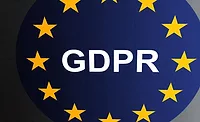Many Global Executives Don't Believe GDPR Compliance is Relevant to Their Business
Many global business decision makers are unaware of the implications of the forthcoming General Data Protection Regulation (GDPR), as well as other compliance regulations like PCI-DSS and ISO27001/2, with one in five admitting they do not know which regulations their organization is subject to. This is according to the 2017 Risk:Value report, commissioned by NTT Security.
The survey of 1,350 non-IT executives across 11 countries, reveals that just four in ten (40%) respondents globally believe their organization will be subject to the EU GDPR. Perhaps of most concern is the one in five (19%) who admit they don’t know which compliance regulations they are subject to. In the UK, just 39% of respondents currently identify GDPR as a compliance issue, and 20% admit they don’t know, while those outside of Europe are even less aware. Just a quarter of business decision makers in the US, 26% in Australia, and 29% in Hong Kong believe they are subject to the GDPR, despite the fact it will apply to any business holding or collecting data on European citizens.
Coming into force on May 25, 2018, the legislation leaves companies with less than a year to comply with strict new regulations around data privacy and security and could result in penalties of up to €20 million/$22.6 million or 4% of global annual turnover, whichever is higher.
With data management and storage a key component of the GDPR, the Risk:Value report also reveals that a third of respondents do not know where their organization’s data is stored, while just 47% say all of their critical data is securely stored. Of those that know where their data is, fewer than half (45%) describe themselves as ‘definitely aware’ of how new regulations will affect their organization’s data storage. Those in Financial Services & Banking and Computer Services & Technology are most likely to know where their data is stored and which compliance regulations they are subject to.
“In an uncertain world, there is one thing organizations can be sure of and that’s the need to mark the date of 25 May 2018 in their calendars, “according to Garry Sidaway, SVP Security Strategy & Alliances at NTT Security. “While the GDPR is a European data protection initiative, the impact will be felt right across the world for anyone who collects or retains personally identifiable data from any individual in Europe. Our report clearly indicates that a significant number do not yet have it on their radar or are ignoring it. Unfortunately many organizations see compliance as a costly exercise that delivers little or no value, however, without it, they could find themselves losing business as a result, or paying large regulatory fines.”
Quantifying the threat – reputation, revenue and resignations
- One in eight respondents believe that poor information security is the ‘single greatest risk’ to the business. The most commonly reported risk is ‘competitors taking market share’ (28%).
- According to Risk:Value, 57% of decision makers believe a data breach is inevitable at some point.
- The impact of a breach will be two-fold, with respondents expecting a breach to affect their long-term ability to do business, together with short-term financial losses. More than half (55%) cite loss of customer confidence, damage to reputation (51%) and financial loss (43%), while 13% admit staff losses and 9% say senior executive resignations would impact them.
- The estimated cost of recovery, on average, has increased from $907,000 in 2015 to $1.35m in 2017.
- The estimated impact on revenue has decreased from 12.51% in 2015, but is still a significant 9.95%.
- Only just over half (56%) of decision makers report that preventing a security attack is a regular item on the board agenda, suggesting that more needs to be done to get it taken seriously at a boardroom level.
- Respondents estimate on average that only 15% of their organization’s IT budget is spent on information security – although this figure has gone up from 13% in 2015 and 10% in 2014. Many report that they spend less on security than on R&D (31%), sales (28%), and marketing (27%).
The need to drive a culture of security
- 56% of business decision makers say their organization has a formal information security policy in place, up from 52% in 2015. Just over a quarter (27%) are in the process of implementing one – 1% have no policy or plans to implement one.
- However, while the vast majority (79%) say their security policy has been actively communicated internally, a minority (39%) says employees are fully aware of it. Germany and Austria (85%) are above average in communicating the policy, together with the US (84%) and the UK (83%).
- The percentage of respondents with an official information policy is unevenly distributed on a per-country basis. In Sweden the figure is just 30%, while in the UK, 72% claim an official policy. By sector, healthcare leads the way, with 69% of companies claiming an official information security policy. Finance comes a close second (66%).
- Less than half (48%) of organizations have an incident response plan, although 31% are implementing one. But just 47% of decision maker respondents are fully aware of what the incident response plan includes.
Looking for a reprint of this article?
From high-res PDFs to custom plaques, order your copy today!







